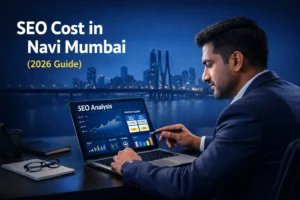It’s hard to believe, but even in 2025, with all the advancements in how search engines work, we still hear stories about less-than-ethical SEO practices. You’d think by now everyone would be playing by the rules, focusing on real value, but unfortunately, that’s not always the case.
I recently had a chat with a client from the UK, and their experience really highlighted that this is still a real issue for businesses looking for help online. They were pretty frustrated after trying to get SEO support from freelancers found on popular platforms.
Here’s a little snippet of how that conversation went, because it’s a story I hear variations of far too often:
Me: “So, what happened with the last few folks you tried working with?”
Client (from the UK): “Oh, it was really disappointing, to be honest. I found a couple of people on [platforms like Upwork/Fiverr]. At first, they seemed great, lots of promises, and the initial reports looked positive.”
Me: “Okay, and then?”
Client: “Well, after the first month or two, things just seemed to drop off. The reports became really generic, and honestly, it felt like they weren’t actually doing anything proactive anymore. The payments were still going through, though!”
Me: “So, you felt like the work stopped, but the billing didn’t?”
Client: “Exactly! It’s like they set something up initially, maybe did a few quick wins, and then just put my account on auto-pilot or something. No real effort, no communication about strategy, just… collecting the money.”
This kind of experience is incredibly frustrating and sadly, not uncommon. These clients start out hopeful, investing their hard-earned money, only to find the initial effort disappears, replaced by automated processes or, worse, plain inactivity.
What Does “Auto Mode” or “Doing Nothing” Look Like?
When a client feels like an SEO provider has put them on “auto mode,” it usually means they stop seeing actual, tangible work happening. This isn’t just about reporting; it’s about the actions behind the scenes.
- Repetitive or Generic Reports: Getting the same canned report each month with no real insights or explanation of what was done.
- Lack of Communication: The provider becomes hard to reach, doesn’t answer specific questions, or avoids discussing the actual strategy.
- No Visible Progress: Rankings stagnate, traffic doesn’t improve (or even drops), and there’s no clear explanation why.
- Using Old or “Black Hat” Tricks: Some might rely on outdated or risky tactics that might give a tiny boost initially but don’t provide long-term, sustainable results, and can even harm your site. Think keyword stuffing (cramming keywords unnaturally) or buying low-quality links – tactics search engines are good at spotting and penalizing.
- Templated Work: Applying the exact same strategy to every client without understanding their unique business or audience.
Why Does This Still Happen?
Part of the challenge is that SEO can feel a bit like a “black box” to clients. It involves technical stuff, ever-changing algorithms, and results take time. This makes it easier for unscrupulous individuals to take advantage. They might show some initial activity, knowing that it takes a while for clients to realize the lack of real work or for search engines to catch onto shady shortcuts. Platforms where finding freelancers is easy can sometimes be fertile ground for this, as vetting can be tricky.
How Can Clients Protect Themselves?
It’s not all doom and gloom! You can find great, ethical SEO professionals. Here are a few simple things to keep in mind:
- Ask Questions (and Keep Asking): Don’t be afraid to ask what they are doing, why they are doing it, and how it helps your specific goals. A good professional will be happy to explain in plain language.
- Look for Transparency: Do they clearly explain their methods? Do they share access to tools like Google Analytics or Search Console so you can see data yourself?
- Be Wary of “Guarantees”: No one can guarantee a #1 ranking on Google. SEO is about effort, strategy, and adaptation, not magic promises.
- Understand the Timeline: Real, sustainable SEO takes time – usually several months to start seeing significant results. Be patient with genuine efforts, but question inactivity.
- Check Reviews and Ask for References: Look beyond just the profile on a platform. See if you can find reviews elsewhere or if they can provide references from past clients.
- Focus on Communication: A good relationship with your SEO provider involves regular, clear communication.
Finding the right SEO partner is an investment in your business’s future. By being aware that these unethical practices still exist and knowing what signs to look for, you can better protect yourself and find someone who will genuinely help you grow online.
















